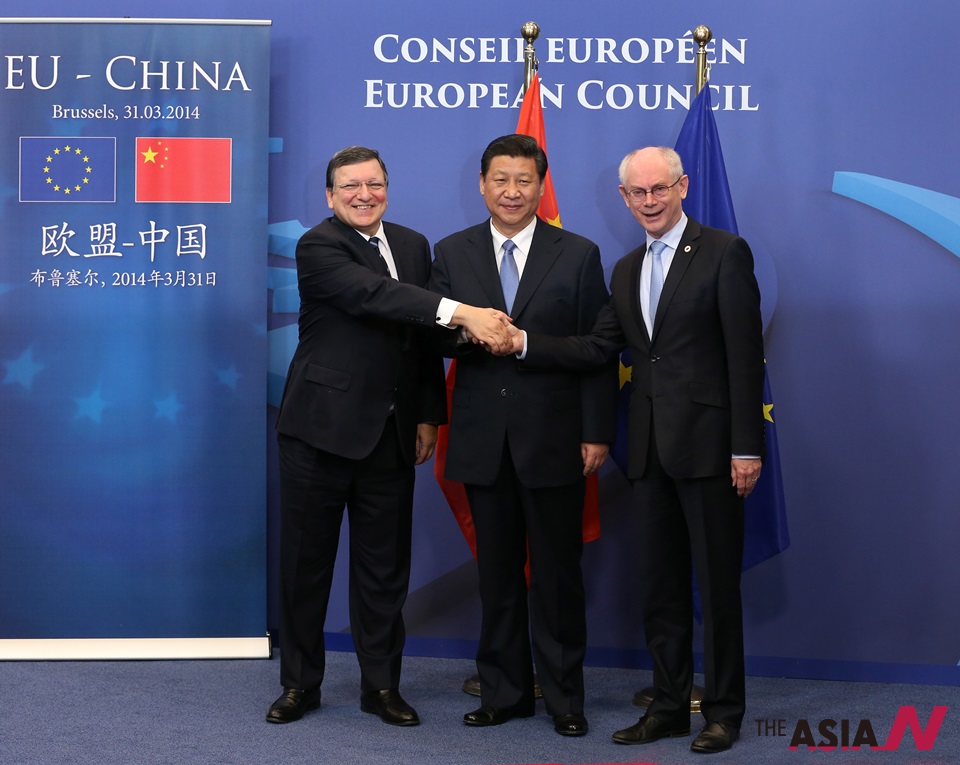
[Asia Round-up] Avoid setting dangerous precedent

The Liberal Democratic Party and New Komeito have started talks over the Abe administration’s bid to scrap the government’s traditional interpretation of the Constitution that Japan cannot exercise the right to collective self-defense. Prime Minister Shinzo Abe wants to allow the nation to be able to use force to counter an attack on a country with close ties with Japan even if Japan itself is not directly under attack. New Komeito should not accept Abe’s initiative because it represents an effort to discard — without any Diet discussions — a constitutional interpretation that was established through Diet debates over decades and a 1981 Cabinet decision that Japan cannot exercise the right to collective self-defense.
The Abe-led LDP is trying to win over New Komeito by saying that even after the constitutional interpretation is reversed, Japan will exercise the right to collective self-defense only in a limited way. The Abe administration reportedly plans to make it clear that Japan will limit the Self Defense Forces’ activities within Japan’s territorial waters and international waters, ruling out in principle the dispatch of the SDF to other countries’ territories, territorial waters or territorial space.
But Abe reportedly will only announce such intentions verbally in the Diet, rather than as a documented policy. This cannot possibly serve as a brake to limit the scope of the SDF’s activities because a future administration could easily adopt a new decision to expand the scope. In a nutshell, exercising the right to collective self-defense means to engage in a military action for the sake of another country. But such an interpretation cannot be derived from the Constitution’s Article 9, which renounces war as a sovereign right of the nation and the threat or use of force as means of settling international disputes, and does not recognize the right of belligerency of the state.
One of the missions reportedly contemplated by the Abe administration as an example of the exercise of the right to collective self-defense is SDF disposal of mines laid in the Persian Gulf, acting on the request of the United States as part of a military operation in the region. But such an action on Japan’s part would amount to participation in the military conflict and waging war against the country that laid the mines.
In the talks with New Komeito, the LDP is attempting to draw on the 1959 Supreme Court ruling on the so-called Sunagawa incident, in which seven people opposing expansion of the U.S. Air Force’s Sungawa base in a Tokyo suburb were charged with entering the base, as a means to justify the Abe administration’s bid. Although the Tokyo District Court acquitted the defendants by declaring that the stationing of U.S. forces in Japan violates the war-renouncing Article 9 of the Constitution, the Supreme Court reversed the ruling. In convicting the seven, the ruling said that Japan can take necessary measures for self-defense to maintain its peace and security and to secure its existence. LDP deputy chief Masahiko Komura said that the “necessary measures” mentioned in the ruling includes the exercise of the right to collective self-defense. Abe has also started using the same argument.
But this logic is far-fetched and should be dismissed. The focus of the trial was on whether the stationing of U.S. forces in Japan was constitutional, and the Supreme Court ruling did not deal with the issue of whether Japan can exercise the right to collective self-defense.
There is also an argument that the Supreme Court ruling is invalid because the chief justice met with U.S. Ambassador to Japan Douglas MacArthur II several times prior to the ruling and hinted that the lower court ruling would be reversed — in apparent violation of Article 76 of the Constitution, which in part says that “all judges should be independent in the exercise of their conscience.”
The LDP, Komura and Abe should drop their baseless argument and instead pay serious attention to the fact that even after the Supreme Court ruling, the government has time and again made it clear that if Japan is invaded, it will fight back the enemy with the use of minimum necessary force on the condition that there are no other means to repel the attack. This a declaration that Japan will take a “defense-only” defense posture based on the right to individual self-defense, meaning that Japan will not deploy the SDF overseas for military operations and will not allow the SDF to have the capability to launch a strategic attack on another country.
The Abe administration is trying to kill — by a mere Cabinet decision alone — a constitutional interpretation that has been backed by Diet debates over several decades. What it is trying to do is nothing other than undermining a normal process of parliamentary and constitutional democracy. Once the administration’s attempt succeeds, it may give rise to a situation in which any administration can virtually supersede what is written in the Constitution by just making a Cabinet decision.
Diet members of the LDP — along with New Komeito — should be aware of this danger and put a stop to the Abe administration’s move. At the very least, the two parties should press the Abe administration to accept Diet discussions on the issue. Local assemblies also should adopt resolutions opposing the Abe administration’s move to discard the constitutional interpretation in question.
Japan Times, Japan





